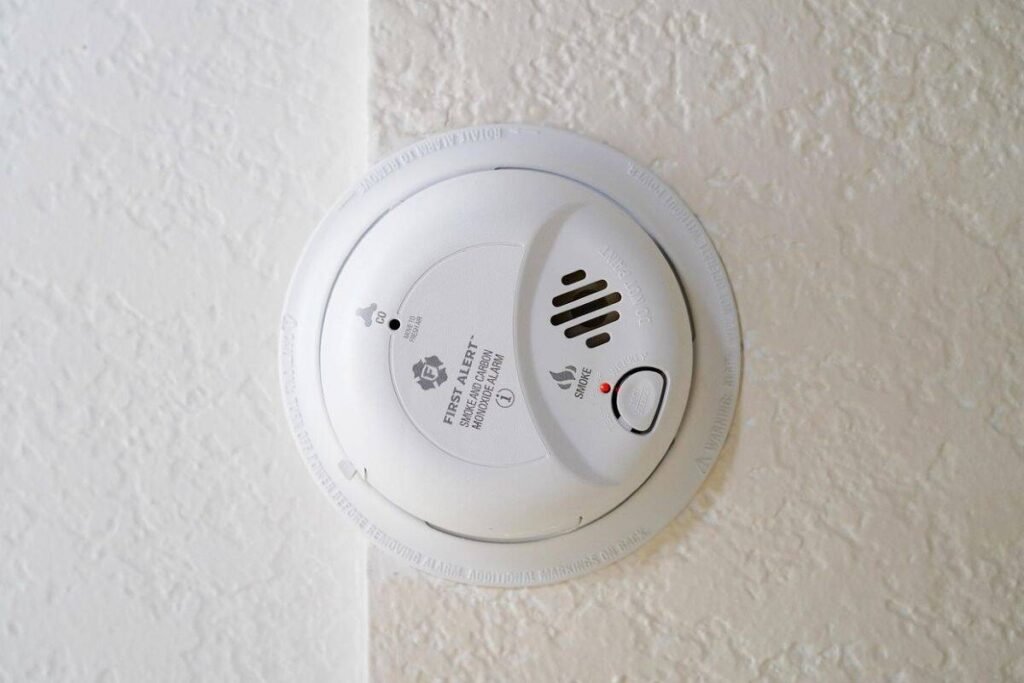Smoke detectors play a crucial role in maintaining home safety. They can prevent minor kitchen mishaps from turning into serious emergencies. It’s important not to overlook the significance of smoke detectors and to ensure they are in proper working condition through regular testing. Here’s a guide on how to test your smoke detectors and keep your home secure.
How to Test Your Home’s Smoke Detectors
Step 1: Press and Hold the Test Button
Before initiating the test, have someone positioned in another room at a distance from the alarm. In case of an emergency, it’s crucial for the alarm to be audible throughout the house. Locate the test button at the bottom of the smoke detector and press and hold it until the alarm goes off.
Step 2: Listen for the Alarm
Once the alarm sounds, take note of its volume. It should be loud, high-pitched, and easily heard by everyone in the home. If the alarm doesn’t go off or is too faint, indicating the need for new batteries, you must address this issue promptly.
Step 3: Replace Batteries if Necessary and Retest
Always opt for fresh batteries when replacing them. After changing the batteries, repeat the test while ensuring someone in another room can hear the alarm clearly. If problems persist, it may be time to replace the smoke detector altogether. Neglecting a faulty smoke detector can lead to complications, including failing a home inspection.
Testing Battery-Powered vs. Hardwired Smoke Detectors
While battery-powered smoke detectors are common, hardwired ones connected to the electrical grid also require testing. Even though hardwired detectors don’t need battery replacements, they can still malfunction, necessitating regular checks.
Advanced Smoke Detector Test
In addition to manual testing, you can use an aerosol test to check the sensors. A specialized smoke spray designed for this purpose can be sprayed near the detector’s vents to trigger the alarm. If the alarm doesn’t sound, it indicates a faulty sensor and the need for a new smoke detector.
FAQ about Testing Smoke Detectors
How Often Should I Test My Home’s Smoke Detectors?
The U.S. Fire Administration recommends monthly testing to ensure proper functionality, especially for older detectors with potentially decreased sensor effectiveness.
When Should I Replace the Smoke Detector’s Batteries?
Replace dead batteries immediately if the alarm isn’t working. Otherwise, aim for battery replacements every six months, possibly coinciding with daylight savings time changes.
Why Is My Smoke Detector Beeping Unnecessarily?
Intermittent beeping without smoke presence signals a low battery, prompting immediate replacement. External factors like dust, steam, or insects can also trigger false alarms.
How Can I Maintain My Alarm’s Efficiency?
Regular testing and keeping the smoke detector free of dust are essential for optimal performance. Blocked sensors can compromise detection capabilities.
What Is the Lifespan of Smoke Detectors?
Smoke detectors typically last around 10 years. Even if the alarm still works, it’s advisable to replace the detector after this timeframe.

